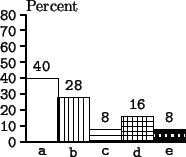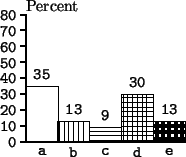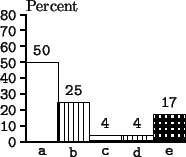|
|
|
|||||||||||||||
|
|
||||||||||||||||
|
Homepage > Assessment > Logic > Question 8 |
||||||||||||||||
|
|
||||||||||||||||
|
|
Philosophy
103: Introduction to Logic
Answer Choices: a. The argument does prove its conclusion. Answer a is the best answer to this question. b. Answer b would be correct if some illiterate persons were college graduates, but this is ruled out by the premiss, "All persons who cannot read well are persons who are illiterate," considered as a definition. c. Arguments can have all true statements by coincidence, and the conclusion, although true, does not follow logically from the premisses. d. Accurate reasoning depends both upon the structure and grammar of what is said (the validity) and upon the truth of the reasons adduced. One can argue validly with premisses not known to be true. e. Logic is a prescriptive discipline and claims consistent applications of its principles. Evaluation: The answers to this question are fairly consistent across the disciplines. If this type of question is retained, one might suppose logic students reach the wrong answer more often than the controls, because they might analyze the argument according to the rule of the syllogism and not notice the meaning of the statements used. Perhaps, the question in future assessment tests should be simply an example of illicit major. |
||||||||||||||
|
Send corrections or suggestions to webmaster@philosophy.lander.edu |
||||||||||||||||
|
Arguments | Language | Fallacies | Propositions | Syllogisms | Translation | Symbolic |
||||||||||||||||
|
|
. |
|
||||||||||||||



